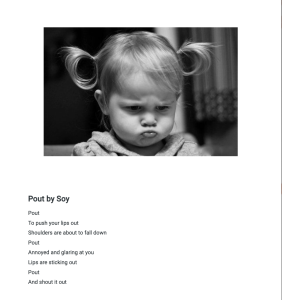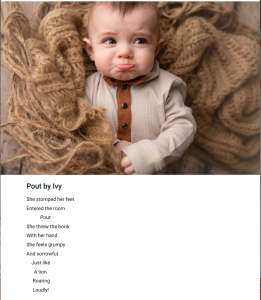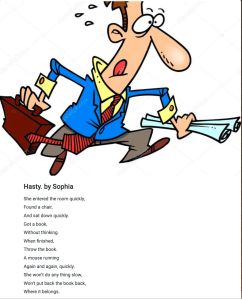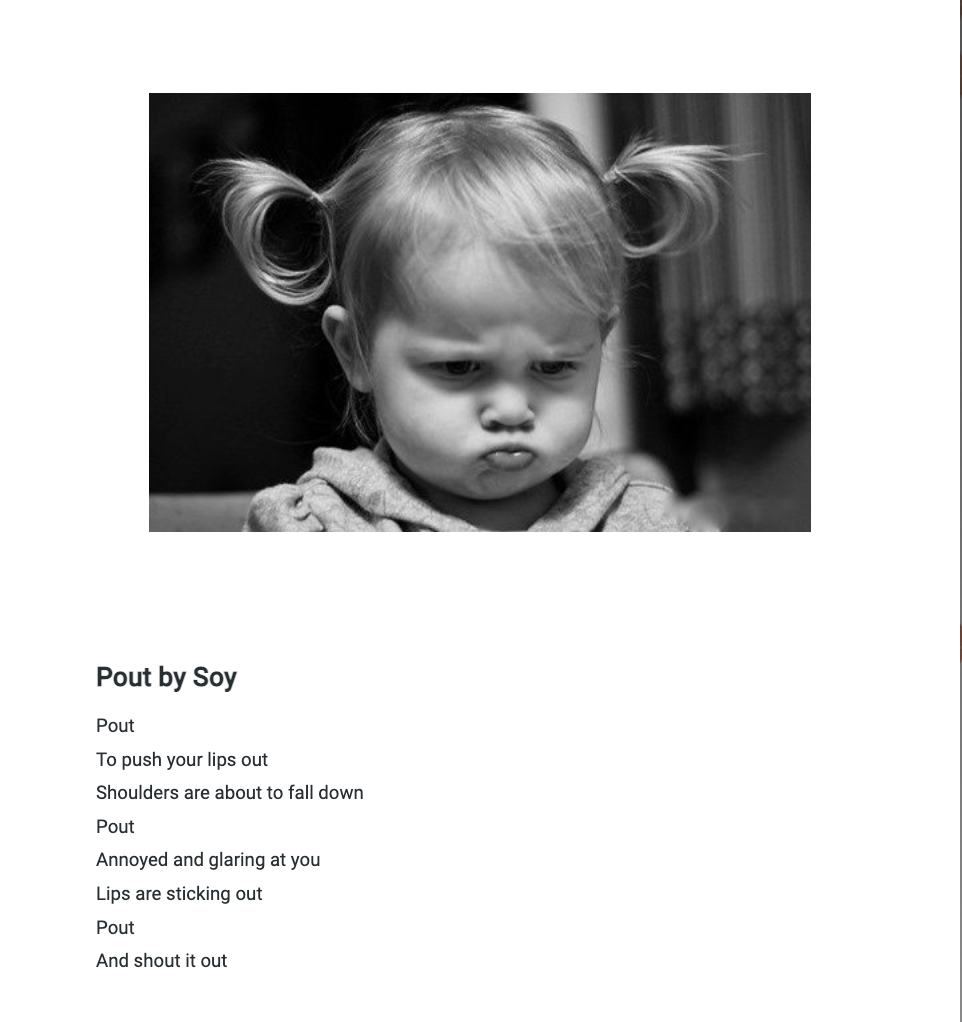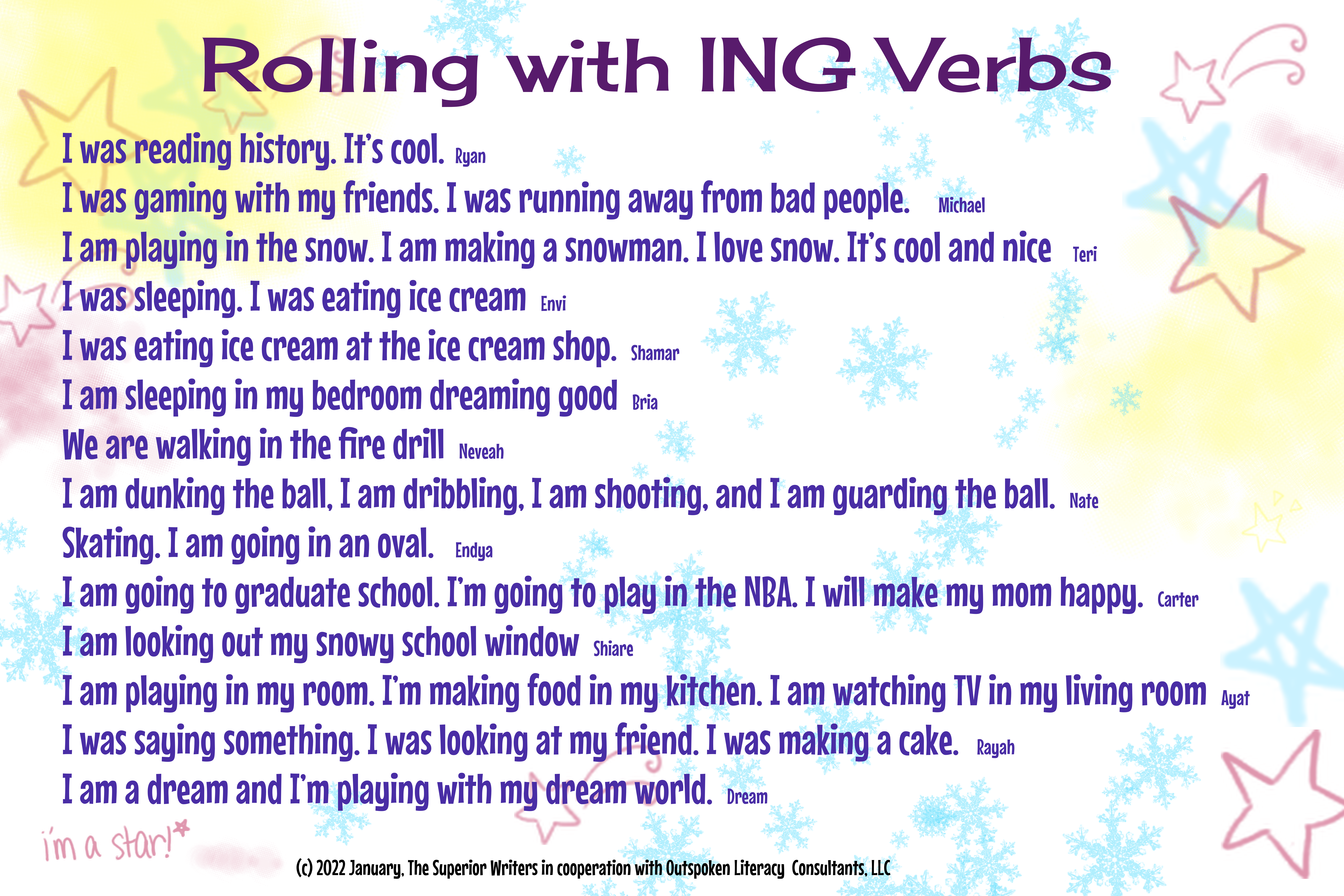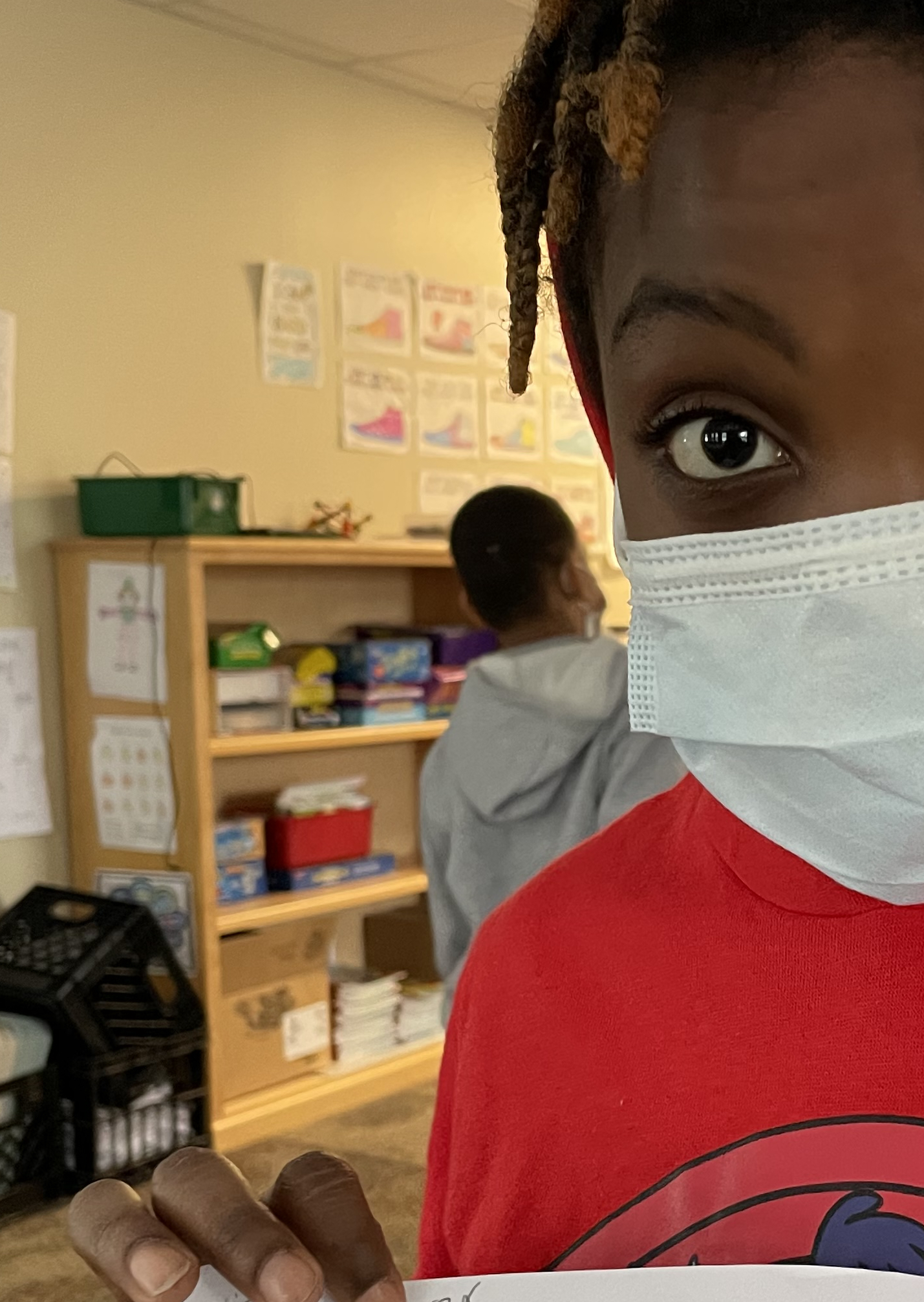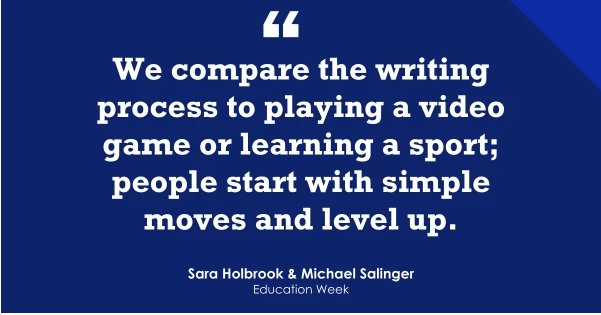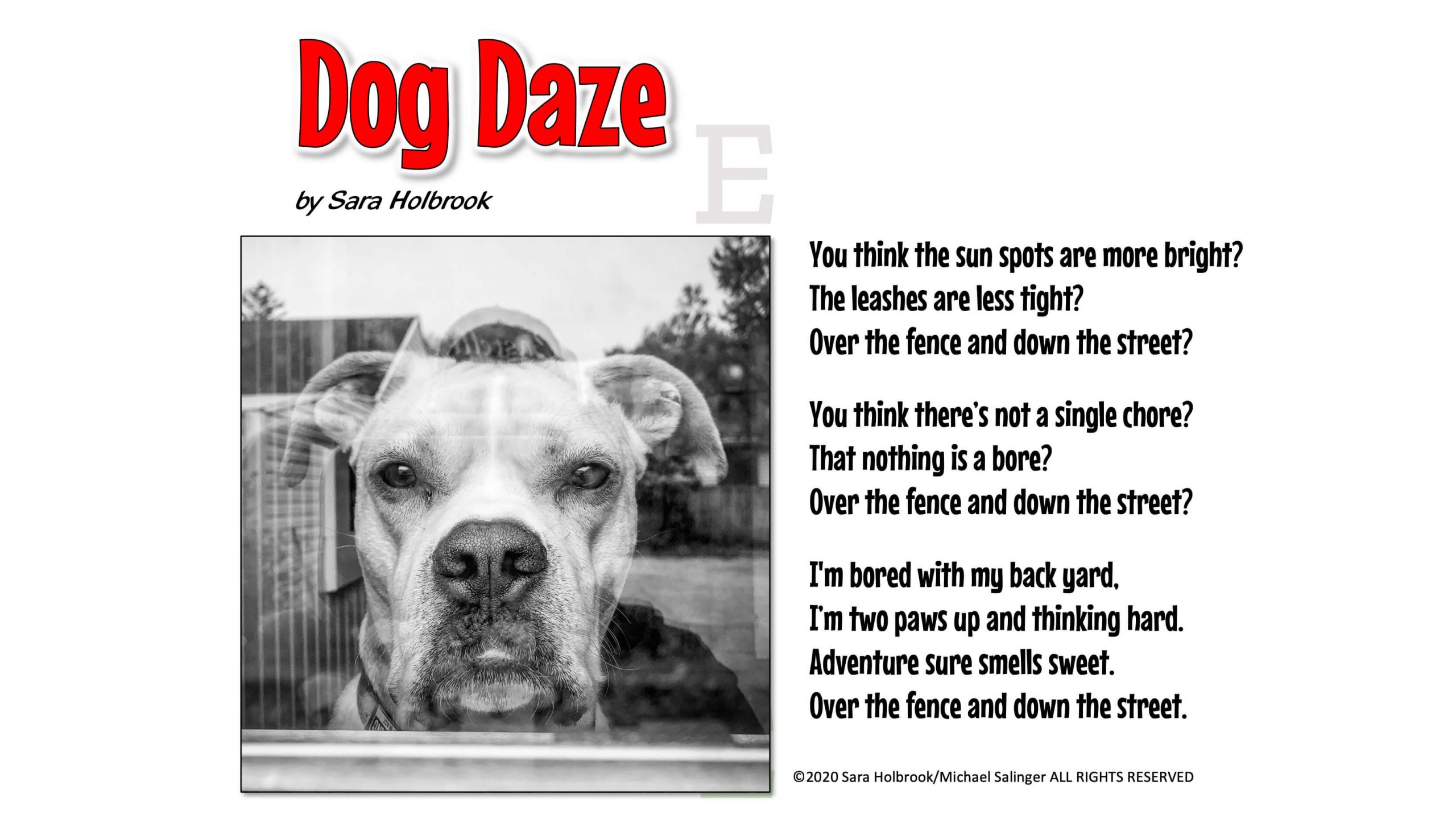Rita Moltzan is a teaching librarian at the Raffles American School, Johor.
Read Write Speak it Meets SWI!
My 4th grade ELL class and I have been using and enjoying the “Read Write Speak It” resources for this whole school year. In August, we started our school year online due to Covid 19 restrictions and didn’t return face to face until November. With limited class time with my ELLs (4 fifty-minute pull-out lessons each week) at my small international school in Malaysia, I didn’t always have time for all components, as I needed to support any homeroom class writing or projects during our ELL time together.
We always listened to, read, and re-read the poem of the week (affectionately known as the POW). We focused on comprehension, personal response, and vocabulary. If I didn’t have other homeroom writing tasks to work on, we would do a journal prompt or quick write. My students loved the poems and were so engaged. We were fortunate enough to have a Zoom meet up with Sara and Michael during poetry month when my class shared their recitation of “Copy Cat”. What a special treat.
I tried to weave SWI (Structured Word Inquiry; Peter Bowers, Kingston Ontario) with each poem when we discovered morphologically complex words with prefixes and suffixes. We focused on the meaning of the base and the changes to meaning the prefix and /or suffix introduced. After inquiring into the words, we’d jump spell the words keeping the prefix, suffix, and any blend as one jump and single sound letters as individual jumps. This helped cement the concept of prefixes and suffixes holding meaning.
During poetry month, we explored Sara Holbrook’s Pout poem and “Angry” from Wham! It’s a Poetry Jam. Using the two poems as mentor texts, we talked about feelings and how we express them. Next, students found feelings words from something they had read or seen recently, and we made a list of wonder words. The goal was a feeling word but also be a new word for them. After brainstorming a list of words, students all chose a favorite word to investigate. Using a structured word inquiry approach, we focused on the meaning first using online dictionaries, then inquired into the word’s morphology. Using Angry as our mentor text and a framework for writing, we wrote our own poems about our feelings.
While this writing was a bit challenging for my ELL students, I was so impressed in the effort, thought, and feeling they put into their poems. Without Sara and Michael’s mentor and inspiration, I’m not sure If we would have created the same level of writing. One student in my ELL class is struggling significantly with reading and writing, and her poem produced so much emotion.
Invisible (In +vise +ible _–> invisible)
No one sees me
But I walk past you
How don’t you see me?
I’m unnoticeable now
Oh, I can’t see
Myself in the mirror
While this poem diverged significantly from the mentor framework, it captured the goal of defining a new and challenging word. Overall, my students grew in confidence, oral communication, vocabulary, and writing with our use of Read Write Speak it poems this year.
